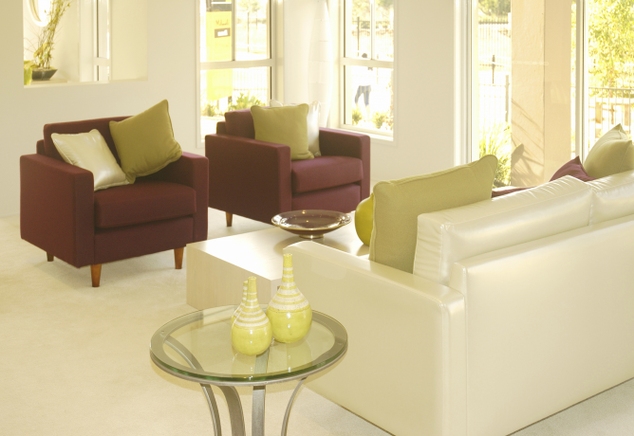
GUIDELINES FOR TENANTS
The Check Out
If you are not ready to leave, it may not be possible to carry out the Check out. In this case a return visit will be necessary and a charge will be incurred.
The Inventory Clerk acts as an independent and reasonable body and will avoid unnecessary criticism or derogatory comments when compiling or checking the Inventory.
At the termination of the tenancy the inventory will be checked and any obvious or significant discrepancies will be reported to the Managing Agent or Landlord. This report will be used to judge whether the tenant is liable for any deterioration or whether it is considered fair wear and tear. Normal fair wear and tear will be assessed on the length of the tenancy and type of occupancy.
Check Out Procedures
All items should be placed back in their original locations as described on the inventory and all personal belongings must be removed.
* All China, Glassware, Kitchen Utensils etc, should be clean and accessible. Any packed away during the duration of the tenancy must be unpacked, cleaned and returned to the correct position.
* It is expected that the property will be in a similar condition of cleanliness as at Check-in.
* Beds should not be made up as they need to be examined. Bedding and linen should be clean and placed neatly in the appropriate room.
* All keys must be available and labelled clearly.
* You must be ready to vacate the property and hand over the keys at the appointed time otherwise charges may be incurred.
Cleaning
This must be thorough. Areas commonly missed or left out are: skirting boards, extractor hoods, wardrobe & drawer interiors, under furniture, fridge/freezers.
If the standard of cleaning is not satisfactory, most Managing Agents or Landlords will employ a professional cleaner and the cost will be deducted from your deposit. If you enlist a professional cleaner always keep hold of your receipts and show them to the check out clerk.
Crockery
These items will be checked for soiling, chips, burn marks, loose handles to pans, and such like. If damage has occurred beyond fair wear and tear, compensatory or replacement costs may be deducted from your deposit by the Managing Agent or Landlord.
Carpets
All carpets should be thoroughly vacuumed. Depending on the agreement and/or length of tenancy they should be professionally cleaned. You will be charged to clean any staining or soiling. Compensatory costs will be made towards any further damage such as stains or cigarette burns. If a carpet is badly marked or damaged, you may be charged for part or all of the cost of replacement.
Beds
Beds, bases and mattress, and pillows will be examined for staining and damage not previously recorded on the inventory. Charges will be made in the form of cleaning charges, or compensation, or a percentage of the replacement cost as appropriate. Linen and bedding, if any, should be left clean and pressed.
Decorations
It is accepted that during the course of normal day to day living a few marks and scuffs will appear on walls and woodwork, this is classed as fair wear and tear. However, should the marking be found to be excessive charges may be deducted from your deposit by the Managing Agent or Landlord. For example, hooks and nails driven into walls, excessive furniture rubbings, pencil or crayon marks, tears to wallpaper, excessive damage to woodwork.
Keys
All keys listed on the inventory or check in should be kept safely and handed back at the end of the tenancy. Should any keys be lost, you may be charged replacement costs for the locks. If you have extra keys cut, these should also be returned.
Soft Furnishings
It is expected that these will be in a similar condition to the start of the tenancy. Any staining, soiling or excessive discolouration will attract cleaning charges.
Wear & Tear
Through the legal process the definition of ‘Fair Wear and Tear’ is becoming more defined. A tenant cannot be held responsible at the end of a tenancy for changes in a property’s condition caused by what the House of Lords has called “reasonable use of the premises by the tenant and the ordinary operation of natural forces (i.e. the passage of time)”.
Many factors have to be assessed before a judgement can be made. For example, you have to consider:
* the length of the tenancy
* the number and ages of the tenants
* the quality and expected lifespan of the item
* the condition at check-in
* the condition at check-out
* any extenuating circumstances.
The law does not allow for betterment, which means a landlord cannot expect to have old replaced with new at the tenants expense, or indeed clean for that soiled at the start of the tenancy. The tenant has a duty of care to return the property at the end of the tenancy in the same condition – “Fair Wear and Tear” accepted– as that recorded on the Inventory at the start of the tenancy.
Gardens
Unless alternative arrangements have been agreed, you will be required to maintain the garden. This includes the cutting of lawns, weeding of beds, and maintaining the garden according to the season. This may include trimming bushes and shrubs, but it is suggested this is confirmed with the Managing Agent or Landlord prior to taking action as they may need specialist treatment. If the standard of the garden is found to be untidy, compared with the commencement of tenancy, most Managing Agents or Landlords will employ a contract gardener and the cost will be deducted from your deposit.
FOLLOW US
![]() Facebook
Facebook
![]() Twitter
Twitter
![]() Youtube
Youtube
JOIN OUR MAILING LIST
Be the first to hear about exciting new services, events and offers at Staffordshire Inventories
